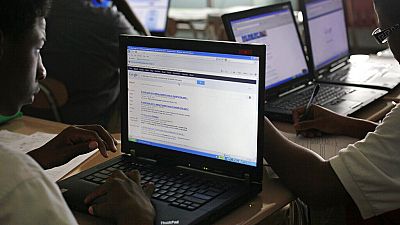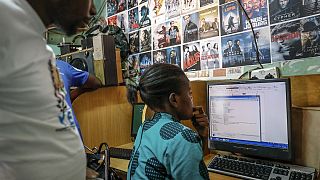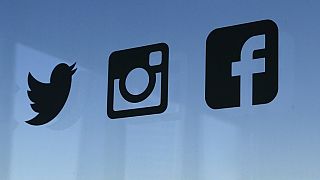South Africa
In a study revealing the digital habits of people worldwide, South Africans emerged as the most voracious internet users, spending a staggering average of at least 9.5 hours online per day in 2022.
This figure surpassed the global average by a notable three hours, as reported by Atlas VPN, a Delaware-based virtual private network (VPN) platform.
The study, which delved into internet usage patterns across 46 countries among individuals aged between 16 and 64, sourced its data from reputable sources like social media research firm We Are Social and social media intelligence platform Meltwater.
One of the driving factors behind South Africa's internet enthusiasm is the increasing accessibility of the web across the country and the African continent. In 2020, around 70% of South Africans had internet access, a figure that has likely grown since then.
By 2023, the nation boasted 43.48 million internet users, showcasing an impressive penetration rate of 72.3% among its population of 60.14 million. The South African government aims to achieve universal web access for all its citizens' households by 2024, further fueling the digital surge.
Despite South Africa's internet speed lagging behind the global average, the nation has been making strides in improving connectivity. In 2021, the country was ranked 68th globally for its digital quality of life. Moreover, South Africa stood out in terms of mobile and broadband internet affordability within Africa, along with commendable mobile internet stability.
Globally, mobile internet usage has become the leading mode of connectivity, particularly in sub-Saharan Africa, where smartphones have emerged as the primary medium for accessing the web.
The study by Atlas VPN highlighted the top reasons for South Africans spending their time online, which included seeking information (57.8%), staying connected with friends and family (53.7%), staying up-to-date with news and events (50.9%), watching videos (49.7%), and acquiring knowledge on various subjects (47.6%).
Apart from South Africa, several other nations exhibited remarkable internet addiction. Brazil topped the list, with an average daily internet usage of 9 hours and 32 minutes, closely followed by the Philippines (9 hours and 14 minutes), Argentina, and Colombia, both tied at 9 hours and 1 minute.
Notably, the United States and Singapore were also noted for dedicating an above-average amount of time to internet browsing, with a daily average of 419 minutes (6 hours and 59 minutes).
On the other end of the spectrum, some European countries, such as Denmark, Austria, and Germany, spent less time online than the global average. East Asian countries, like China and Japan, also lagged behind in daily internet usage, with figures of five hours and 25 minutes and three hours and 45 minutes, respectively.
Globally, the overall average time spent online has witnessed a gradual decline, down by 20 minutes (4.8%) from 2021. This shift is likely attributed to the world moving past the COVID-19 phase, where internet usage saw a significant surge due to lockdowns and restrictions.
As technology continues to evolve and internet infrastructure improves worldwide, the global internet landscape is bound to undergo further transformations, affecting how people interact and engage with the online world.













Go to video
Ruto's $9M mega church sparks outrage amid Kenya's crisis
Go to video
Semenya ruling shakes foundations of gender rules in sport
Go to video
“I can’t do nuttin’ for ya man”, Nigerian Minister quotes Flavour Flav in rejection of Trump policy
01:53
SMES under pressure as business confidence hits four-year low in South Africa
Go to video
U.S. slashes visa duration for some African nationals amid policy shift
Go to video
Nigeria snubbed at White House summit, opposition blames Tinubu